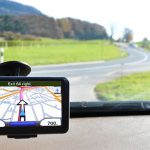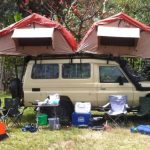Kilimanjaro Climb via Rongai Route begins at the remote, northern side of Kilimanjaro, near the Kenya border. The climb took 6 days. We climb through a true wilderness to the jagged Mawenzi Peak, then cross a barren desert saddle, before climbing up Kibo’s eastern crater wall. The Rongai route is a more gradual ascent, and is therefore preferred by novice climbers, but is equally enjoyable for even the most hardened trekkers.
Day 1: Arrive Marangu
Clients flying into Kilimanjaro International Airport (JRO) early today we recommend a private transfer to Marangu where the rest of the day is at leisure. We stay at the Kilimanjaro Mountain Resort, which is beautifully located on the lower slopes of Kilimanjaro and is a perfect place to prepare for your Kilimanjaro climb.
Day 2: Rongai One (2,600 m); 3-4 hours climb.
After completing the necessary registration formalities at Marangu National Park gate, we transfer by Landrover to Rongai. The climb begins from Nale Moru (1,950 m) on a small path that winds through fields of maize and potatoes before entering pine forest. The track then starts to climb consistently, but gently through attractive forest that shelters a variety of wildlife, including the beautiful Kilimanjaro Colobus monkey. These monkeys are black with a long ‘cape’ of white hair and a flowing white tail. The forest begins to thin out and the first camp, Rongai One, is at the edge of the moorland zone (2,600 m) with extensive views over the Kenyan plains.
Day 3: Kikelewa campsite (3,600 m); 6-7 hours climb.
The morning walk is a steady ascent up to the ‘Second Cave’ (3,450 m) with superb views of Kibo and the Eastern icefields on the crater rim. After lunch, we leave the main trail and strike out across the moorland on a smaller path towards the jagged peaks of Mawenzi. Kikelewa campsite is in a sheltered valley with giant senecios near Kikelewa Caves (3,600 m).
Day 4: Mawenzi Tarn (4,330 m); 3-4 hours climb.
A short but steep climb is rewarded by superb allround views and a tangible sense of wilderness. We leave vegetation behind shortly before reaching the next camp at Mawenzi Tarn (4,330 m), spectacularly situated in a cirque directly beneath the towering spires of Mawenzi. The afternoon will be free to rest or explore the surrounding area as an aid to acclimatisation. [3-4 hours walking]
Day 5: Kibo campsite (4,700 m); 5-6 hours climb.
We cross the lunar desert of the ‘Saddle’ between Mawenzi and Kibo to reach Kibo campsite (4,700 m) at the bottom of the Kibo crater wall. The remainder of the day is spent resting in preparation for the final ascent before a very early night.
Day 6: Gillman point, Uhuru Peak, Horombo Hut (3.720); 11-15 hours climb and retrace.
We will start the final, and by far the steepest and most demanding, part of the climb by torchlight around 1 a.m. We plod very slowly in the darkness on a switchback trail through loose volcanic scree to reach the crater rim at Gillman’s Point (5,685 m) we will rest there for a short time to enjoy the spectacular sunrise over Mawenzi. Those who are still feeling strong can make the three hour round trip to Uhuru Peak (5,896 m), passing close to the spectacular glaciers and ice cliffs that still occupy most of the summit area. The descent to Kibo (4,700 m) is surprisingly fast and, after some refreshment, we continue the descent to reach Horombo Camp (3,720 m).
Day 7: Marangu Gate (1,830 m); 5-6 hours retrace.
A steady descent takes us down through moorland to Mandara Hut (2,700m), the first stopping place at the Marangu route. We then continue descending through lovely lush forest on a good path to the National Park gate at Marangu (1,830 m)

